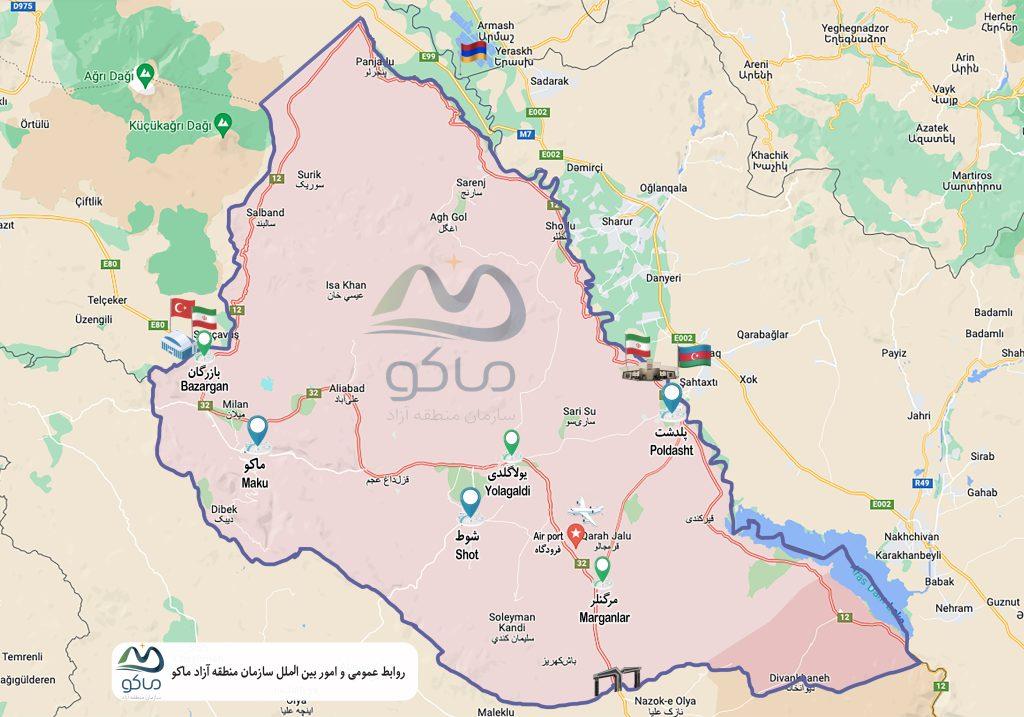1- The Importance of Logistics
Logistics, as a supporter of commercial-production activities, plays a vital role in realizing the economic growth of any country, and the importance of efficient logistics in economic growth and trade is undeniable. Today, this sector is recognized as one of the main factors of the economic development of countries. Logistics performance of countries will be the factor of economic growth and their competitiveness in both international and domestic trade fields. Policymakers consider the implementation of sustainable policies to integrate the supply chain not only in countries with the best performance, but also in emerging economies as an engine for growth. Countries with poor performance in the logistics sector face high costs. This is not only because of transportation costs, but also because of unreliable supply chains, which is the main obstacle to convergence and competition in the global value chain.
Logistics is important because it drives the competition of countries and companies and is essential for job creation and economic growth. In fact, it is no coincidence that better performance in logistics is associated with higher income and development. Since efficient logistics connects companies to domestic and international markets, it affects the efficiency of global production value chains and the competitiveness of a country’s economy in these chains.
2- ECO Cooperation Organization (ECO)
ECO is a regional government organization that was established in 1985 by Iran, Pakistan and Turkey with the aim of promoting economic, technical and cultural cooperation between the member countries. In 1992, seven new countries joined the organization, namely: Afghanistan, Azerbaijan, Kazakhstan, Kyrgyzstan, Tajikistan, Turkmenistan and Uzbekistan. Eco region has a bright business perspective. Despite its young demographic composition, ECO has developed into a successful and promising regional organization.
Along with the close cultural and historical links, the member countries have been able to turn their hopes into concrete realities from the existing sub-structural and commercial relations. ECO started to define several projects based on priority projects based on cooperation, which are: energy, trade, transportation, agriculture and drug control. One of the main elements of this organization’s activity is the field of transportation and trade, with the aim of development of transportation and the connection of the communication infrastructure of the member countries with each other and the outside world.
3- The position of Iran from transit, international transportation perspective
The country of Iran has been the source of commerce and trade in the region and Asia since ancient times. This fame was not only because of the people’s business, but also because of the geographical and communication conditions of this land.
The gifts of God and the geopolitical and geoeconomic situation of this country have been more reasons to call it a logistics country; being on the path of five main corridors of transit and international transport (North-South Corridor, Thracian Corridor, East-West Corridor, South Asian Corridor and Altide Corridor), possibility of using all five transportation methods (including: road, rail, air, sea and pipelines), having about 2500 kilometers of blue coast and 6500 kilometers of land border, access to open waters, having ports that have the potential to be among the ten largest logistics ports in the world (such as Shahid Rajaei Port), vastness of the country, the existence of a lot of goods communication between the countries around Iran, whose transit through Iran (if there are equal conditions with other competing routes) both in terms of time and cost is reasonable for the consumer; Each and every of the above mentioned items expresses the extraordinary and even unique logistics advantages of Iran.
4- The potential of Maku Free Zone in the field of logistics
This region has an exceptional position in the transportation and transit of goods due to its connection to the markets of Europe and Central Asia, which is limited to Turkey from the north and Nakhchivan Autonomous Republic from the east with the blue border of Aras. This situation has raised the region as the most important indicator of global trade as a communication highway for the transit of Central Asian and European countries.
In addition to bordering Turkey and Nakhchivan, Maku Free Trade Zone is adjacent to Armenia and the Caucasus region and is the bottleneck of the North-South land corridor (competitor of the Suez Canal on land) and the connecting point of Asia and Europe. Considering the importance of the strategic transportation of the Caucasus for Iran, most of the commercial and political exchanges between Iran, Russia and Europe are from this route. The short distance of Maku Free Zone from the ports of Mersin in the Mediterranean Sea and Trabzon in the Black Sea is a significant advantage in accessing the European markets by land and sea, which is compared to the southern ports of the country in the Persian Gulf. There is no doubt that this region is the most economic bottleneck in the competition with the sea route east and west on land.
5- Smart logistics
Intelligent logistics, which is known as Smart Logistic, is a new service to the transportation and supply chain industry, which was created in order to create a new logistics in information management and cooperation between different actors in the supply chain. This type of logistics, which is more effective and efficient, more compatible with the environment and can produce new processes and services with high added value, is expanding rapidly and has been welcomed.
6- Design and implementation of Eco Smart Logistics Network (ECO SLN)
The use of smart logistics tools and facilities, considering the geographical connectivity of the member countries of the ECO organization and its main goals of developing transportation and communication infrastructure of the member countries, can lead to process integration and facilitation of trade and communication of the members. The development of this model can bring the following results:
– Reducing costs
– Improving data security level
– Improving transportation forecasting
– Reducing bottlenecks and delays in production and logistics
– Optimum use of space and reduction of network waste.


